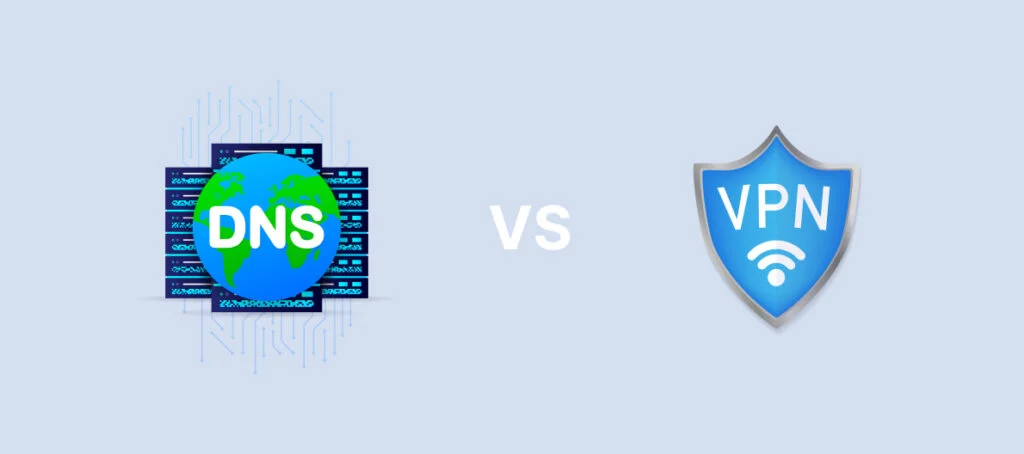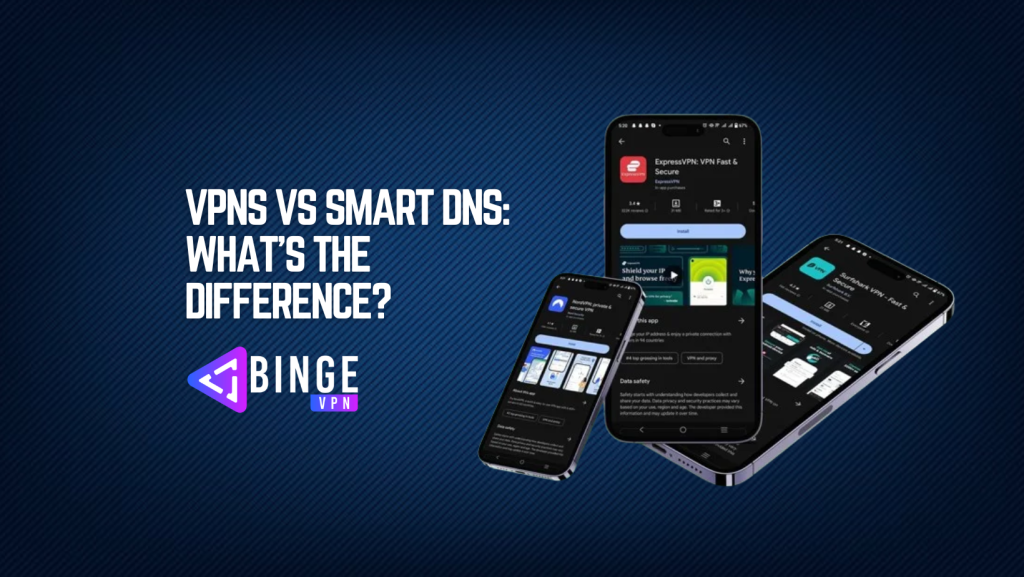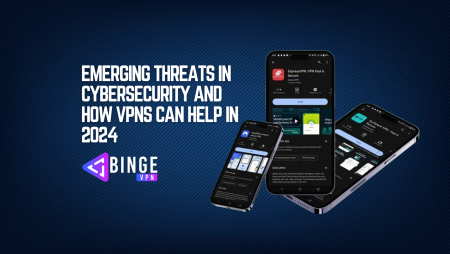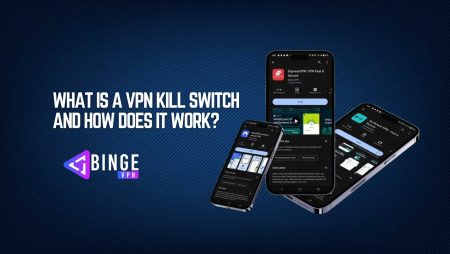As the digital landscape evolves, finding ways to access restricted content and protect privacy has become a priority for many. Two popular solutions often compared are VPNs (Virtual Private Networks) and Smart DNS (Domain Name System). While both can bypass geo-restrictions, they operate in fundamentally different ways. In this blog VPNs vs Smart DNS, we will break down the key differences between VPNs and Smart DNS, helping you decide which option suits your needs.
Knowing how each tool functions will help you choose the one that will work best for your needs, whether that be protecting your online activities or gaining access to restricted international streaming services. Let’s explore the core differences between Smart DNS and VPNs.
What is a VPN?
Securing Your Data, One Connection at a Time
A VPN, or Virtual Private Network, creates a secure and encrypted tunnel between your device and the internet. This method hides your IP address, ensuring that your online activity remains private. VPNs are widely used for security, privacy, and the ability to bypass regional content restrictions by masking your location.
Key Features of VPNs:
- Encryption: VPNs use strong encryption to secure your data.
- IP Address Masking: Your true location is hidden behind a VPN server’s IP address.
- Bypass Geo-Restrictions: Access websites and streaming platforms blocked in certain regions.
- Privacy & Security: VPNs protect against hackers and snoopers, especially on public Wi-Fi.
What is Smart DNS?
Simplifying Access to Geo-Restricted Content
Smart DNS is designed to help users access region-locked content by redirecting their DNS queries through a proxy server. Unlike VPNs, Smart DNS does not encrypt your traffic or hide your IP address. Instead, it works by tricking websites into thinking you are located in a different region.
Key Features of Smart DNS:
- No Encryption: Your internet traffic remains unencrypted.
- Faster Streaming: Without encryption, speeds are often faster than VPNs.
- Region Bypassing: Easily access geo-blocked content like streaming services.
- Same IP Address: Your IP address remains visible, unlike with VPNs.
VPNs vs Smart DNS: What’s the Difference?

1. Privacy and Security: VPN Takes the Lead
One of the most significant differences between VPNs and Smart DNS is privacy. VPNs offer encrypted protection for your data, ensuring your information remains secure. Smart DNS does not provide any encryption, leaving your data vulnerable to hackers or snoopers. If privacy is your top concern, VPNs are the better choice.
2. Speed: Smart DNS Wins in Streaming
Since Smart DNS doesn’t encrypt your data, it generally offers faster streaming speeds than VPNs. If you’re primarily interested in accessing geo-blocked content with minimal impact on your internet speed, Smart DNS may be a more suitable option. VPNs, while secure, can slow down your connection due to the encryption process.
3. Geo-Blocking Bypass: Both Are Effective
Both VPNs and Smart DNS allow users to bypass geo-restrictions, but they approach this differently. A VPN hides your true location by rerouting your traffic through a server in another country, making it appear as though you are physically in that location. Smart DNS only changes the DNS information for specific websites, allowing access without changing your overall IP address.
4. Device Compatibility: A Tie
VPNs and Smart DNS are compatible with a wide range of devices, including smartphones, tablets, computers, smart TVs, and gaming consoles. However, some streaming platforms have become more sophisticated at detecting VPNs, leading to occasional blocks. Smart DNS tends to face fewer issues with these blocks.
When to Use a VPN
For Secure Browsing on Public Wi-Fi
Public Wi-Fi networks, like in cafes, airports, and hotels, are breeding grounds for hackers. A VPN offers a layer of encryption that protects your data from being intercepted by malicious actors. Anytime you connect to a public network, using a VPN ensures that your personal information, login credentials, and browsing history remain private.
For Accessing International Content
Want to watch a TV show or movie available in another country’s streaming library? A VPN allows you to change your virtual location to access content libraries from different regions. Does not matter if it’s Netflix US, BBC iPlayer, or Hulu, a VPN helps you unlock these services regardless of your physical location.
For Bypassing Government Censorship
In some countries, access to certain websites or services is restricted by the government. VPNs help you bypass these censorships by masking your IP address and routing your connection through servers in other regions, giving you full access to the open web.
For Torrenting and File Sharing
VPNs are widely used for secure torrenting and file sharing. When you download or share files, especially large ones like videos or software, a VPN ensures your activities remain private and that your IP address is not exposed to other users.
When to Use Smart DNS
For Buffer-Free Streaming
If you’re tired of buffering while streaming your favorite shows, Smart DNS can help. Since it doesn’t encrypt your data, you’ll experience minimal or no speed loss. This makes Smart DNS a great option for streaming content in high quality, without the delays often associated with VPNs.
For Accessing Multiple Streaming Services
Smart DNS is particularly useful for accessing different streaming services without the risk of getting blocked. It’s designed to work seamlessly with platforms like Netflix, Hulu, and BBC iPlayer. If you regularly switch between streaming services across different countries, Smart DNS offers a convenient and fast solution.
For Gamers Seeking Low Latency
Gamers who need fast response times and minimal lag can benefit from using Smart DNS. Since it doesn’t alter your overall internet connection or encrypt traffic, it helps maintain low latency during online gaming. If speed is essential for your gaming experience, Smart DNS could be the better option over a VPN.
For Ease of Use
Setting up Smart DNS is generally simpler than configuring a VPN, especially on devices like smart TVs and gaming consoles. If you’re looking for a straightforward solution that doesn’t involve complex setup steps, Smart DNS provides an easy, no-fuss way to unblock content.
Pros and Cons: VPNs vs Smart DNS
| Feature | VPN | Smart DNS |
|---|---|---|
| Privacy & Security | Provides encryption and hides IP address | No encryption, IP remains visible |
| Streaming Speed | Can slow down due to encryption | Faster speeds with no encryption |
| Geo-Restriction Bypass | Protection of Public Wi-Fi | Bypasses by altering DNS queries |
| Device Compatibility | Works on most devices | Works on most devices |
| Protection on Public Wi-Fi | Excellent | None |
VPNs vs Smart DNS: Which Should You Choose?
Ultimately, the decision between VPNs and Smart DNS depends on your primary needs. If security and privacy are your top concerns, VPNs provide robust protection. If speed and streaming are more important, Smart DNS offers a fast and efficient solution.
FAQs
What’s the main difference between VPN and Smart DNS?
A VPN encrypts your internet traffic and hides your IP, while Smart DNS only redirects specific DNS queries and does not provide encryption.
Which is faster, VPN or Smart DNS?
Smart DNS is typically faster because it doesn’t encrypt your data like a VPN does.
Can I use Smart DNS for privacy?
No, Smart DNS does not offer any privacy protection or data encryption.
Is Smart DNS compatible with all devices?
Yes, like VPNs, Smart DNS can be configured on most devices, including smart TVs, consoles, and smartphones.
Can VPN be detected by streaming platforms?
Yes, some streaming services can detect and block VPN usage, although many VPNs offer solutions to bypass these blocks.
Can Smart DNS slow down my internet connection?
No, Smart DNS does not impact your connection speed since it doesn’t encrypt your traffic.
Do VPNs and Smart DNS cost the same?
Prices vary, but generally, VPNs tend to be more expensive due to the additional security features.
Can I use both VPN and Smart DNS at the same time?
Technically, yes, but it is usually unnecessary as they serve different purposes.
Conclusion
In the battle of VPNs vs Smart DNS, your choice should reflect your personal needs. If privacy, security, and anonymity are your top concerns, a VPN will serve you well. On the other hand, if streaming speed and access to geo-blocked content are your priorities, Smart DNS is an excellent choice. Both tools have their strengths and weaknesses, so evaluate what’s most important to you before making a decision.




